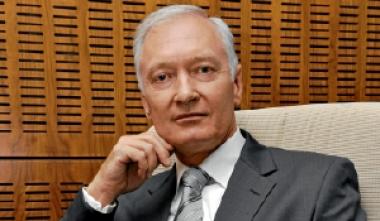New strategy on cards for Murray & Roberts
 Murray & Roberts CEO Henry Laas said the civil construction industry was difficult to operate in, with tight margins in the lower single digits, and a slow roll-out of projects by the government, especially in the years after the 2010 Soccer World Cup
Murray & Roberts CEO Henry Laas said the civil construction industry was difficult to operate in, with tight margins in the lower single digits, and a slow roll-out of projects by the government, especially in the years after the 2010 Soccer World Cup
Murray & Roberts Holdings Ltd. (MUR), South Africa’s biggest construction company by market value, says it wants to shift its focus away from civil construction work in favour of developing a stronger focus in oil and gas, mining, petrochemicals, power and water.
CEO Henry Laas said the civil construction industry was difficult to operate in, with tight margins in the lower single digits, and a slow roll-out of projects by the government, especially in the years after the 2010 Soccer World Cup.
A year after being caught out in anti-competitive collusion on some of South Africa’s biggest infrastructure projects, Murray & Roberts says it might be time for it to cut its exposure to civil construction work.
Competition authorities fined Murray & Roberts R309m for colluding with other companies on 18 of the biggest World Cup infrastructure projects, and the group could lose millions more in civil claims.
Mr Laas said the company would like to expand its presence in oil and gas, mining, petrochemicals, power and water.
M&R has been ridding itself of some enterprises, including its steel, piping and rolling-stock businesses. Its oil and gas company, Clough, acquired late last year, has already turned into the company’s biggest profit maker.
About 75% of the company’s revenues are generated overseas, mainly through its oil and gas business in Australia and from mining in the Americas.
Mr Laas said M&R was very interested in water.
“We are putting our toes in the water, so to speak. The opportunity will come and we need to place ourselves strategically in this area,” he said.
Mr Laas said M&R would also be speaking to Shell about its ambitions to extract shale gas in the Karoo.
The company want to evolve from being focused on construction to concentrating on engineering.
The Competition Tribunal this week suggested that M&R subsidiary Concor might have been involved in a second layer of undisclosed collusion in tendering for the upgrading of the Sishen-Saldanha railway.
Many people believe that the construction companies were not hit hard enough for ripping off taxpayers on large government contracts.
But Mr Laas said that companies had volunteered information on the basis that no further steps would be taken against them.
However, pressure is mounting for the prosecution of company directors allegedly involved in collusion.
Civil claims might emerge and threats are being made that companies could be black-listed by the Construction Industry Development Board.
Representatives of M&R and other construction companies this week met cabinet members from four ministries to ease tensions following the collusion bust.
Mr Laas said the slowness of the roll-out of government infrastructure projects could be, in part, because the government distrusted the industry.
The government is considering spending R3.6-trillion on major infrastructure projects but has consistently been spending below budget on such work.












